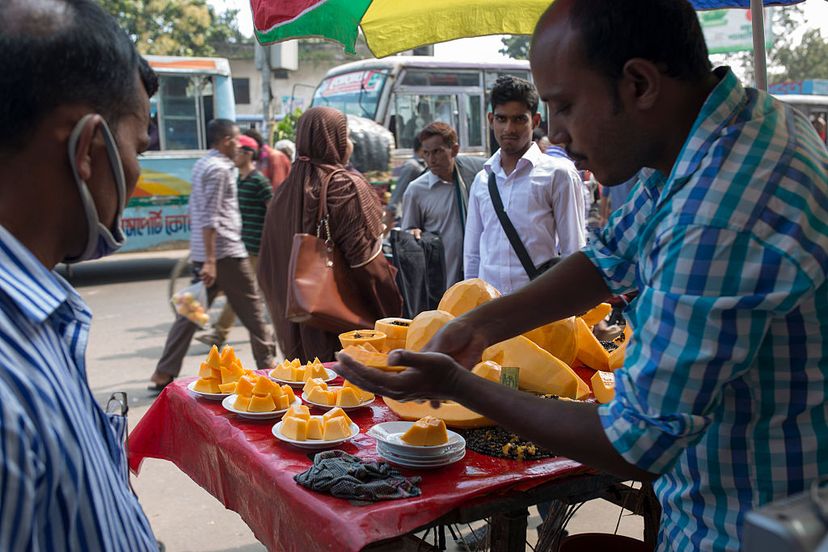 “A vendor sells food on the street in Dhaka, Bangladesh, on Oct. 15, 2016. Most food sold on street corners in developing nations may not be safe for tourists to eat. Zakir Hossain Chowdhury/NurPhoto via Getty Images
“A vendor sells food on the street in Dhaka, Bangladesh, on Oct. 15, 2016. Most food sold on street corners in developing nations may not be safe for tourists to eat. Zakir Hossain Chowdhury/NurPhoto via Getty Images
No one wants to spend their long-awaited vacation holed up in the bathroom. And now you may not have to. A new app designed by The Centers for Disease Control and Prevention (CDC) aims to keep vacationers lounging by the pool, adventuring and otherwise enjoying themselves, by keeping them away from contaminated food.
Many travelers enjoy visits to exotic locales like Costa Rica or the Dominican Republic. But some of these developing nations feature lackluster water treatment systems and little in the way of food preparation regulations, giving bacteria and parasites room to thrive and multiply. Although the locals have usually adapted to these bacteria, visitors often wind up with a nasty case of travelers’ diarrhea (aka as "Montezuma’s Revenge" or "Delhi Belly").
Travelers’ diarrhea is a very common travel-related illness, characterized by loose stools, stomach cramps and vomiting. People usually get it from eating food or drinking water contaminated with bacteria (often the E. Coli bacterium). The illness usually clears up on its own in a few days but can be very unpleasant in the meantime.
The ‘Can I Eat This?’ app doesn’t allow you to enter a specific food in a specific country to find out if it is safe to eat. Instead, it offers general advice on whether you should eat raw or cooked meat; food from a street vendor or from a buffet; drink water with ice, and so on. You select the country in question and access the answers via series of "yes" or "no" questions. The advice is pretty much what you would expect: Don’t eat food from street vendors; be cautious of food that has been sitting out on a buffet for a while; avoid ice unless you can be sure it was made with safe water. Some travelers might take exception to its broad generalizations about the safety of a country’s cuisine. The app is available via Google Play or the iTunes.
Now That’s Scary
About a century or so ago, many cities like London, Paris and New York were hubs of infectious disease. Access to clean water and proper sanitation services have turned all that around. Sadly, 663 million people in the word are currently without access to safe water.


